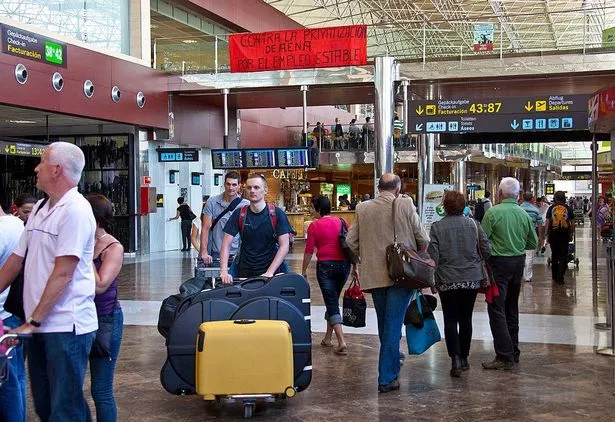The government has issued a ban on certain food products being brought into the UK from the EUTravel
Liam Gilliver and William Morgan Senior reporter
00:34, 17 Apr 2025
 Brits have been told to check the rules before flying home with a wheel of cheese(Image: Getty Images)
Brits have been told to check the rules before flying home with a wheel of cheese(Image: Getty Images)
Brits heading to Europe for the Easter break have been left disgruntled by a sudden government warning. Those fortunate enough to be travelling to an EU destination this month may be considering bringing back some local delicacies.
Visitors to France might find themselves drawn to the country’s numerous cheese shops, or perhaps planning to bring home some beloved cured meat from Spain. However, such actions could now lead to trouble.
The warning comes as the official GOV.UK account posted on X (formerly Twitter) about significant changes to personal imports. “You can no longer bring meat or dairy products from EU or EEA countries into Great Britain for personal use,” it stated.
“If you’re travelling over Easter weekend, check what you can and can’t bring back before you go.”
 Easter holidaymakers cannot bring back popular food items(Image: Getty Images)
Easter holidaymakers cannot bring back popular food items(Image: Getty Images)
The government has introduced these measures to ‘protect farmers from the spread of foot and mouth disease’, despite there being no current cases in the UK. The list of prohibited foods includes:
- Beef
- Pork
- Lamb
- Mutton
- Venison
- Goat meat
- Cheese
- Butter
- Yoghurt
The government website also notes restrictions on bringing fruit, vegetables, nuts, and seeds into Great Britain from overseas. It stated: “If you’re bringing in any food or animal products protected by the Convention on International Trade in Endangered Species of Wild Fauna and Flora (CITES), you may need to apply for a CITES permit.”
When jetting off on holiday to sun-kissed Spain, or soaking up history in France or Italy, you can still bring back some local specialties for friends and family. These treats include:
- Bread, but not sandwiches filled with meat or dairy products
- Cakes without fresh cream
- Biscuits
- Chocolate and confectionery, but not those made with a lot of unprocessed dairy ingredients
- Pasta and noodles, but not if mixed or filled with meat or meat products
- Packaged soup, stocks and flavourings
- Processed and packaged plant products, such as packaged salads and frozen plant material
- Food supplements containing small amounts of an animal product, such as fish oil capsules
Social media users were less than impressed with the ban, expressing frustration at the news. One displeased commentator griped: “Isn’t this quite massive? No more bringing back cheese from France?”
Other users chimed in, with one stating: “I don’t have any plans to travel to the EU currently – but this still upsets me.”
The sentiment was echoed by a third individual, who lamented: “WE CAN’T BRING CHEESE BACK FROM FRANCE?” Another poster wryly commented, “Taste (or rather don’t) all that freedom.”
If you declare banned food products to Border Force officers at customs, they’ll take them away and destroy them – but if you fail to declare the prohibited items, you could be prosecuted. According to GOV UK, Border Force can take away (‘seize’) your products if they think:
- You’ve brought something into the country illegally.
- You’ve brought in too much of a restricted product.
- It’s been cross-contaminated, for example with blood from meat – if any clothing or a bag the item’s in is contaminated, it’ll be destroyed.
